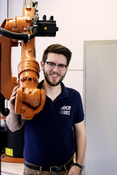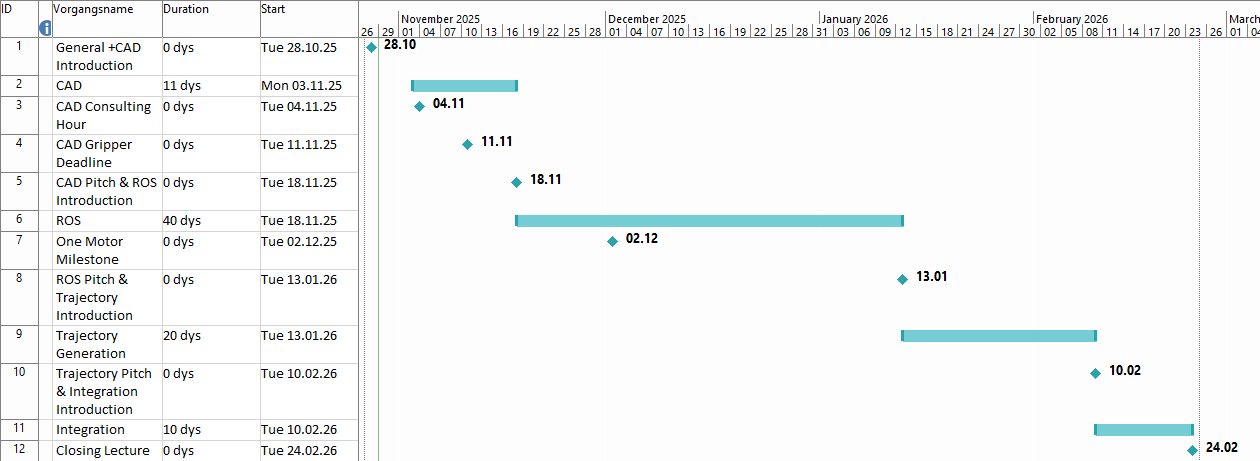Robotics, Automation, and Systems Control Lab (RASCL)
- Typ: Lab
- Zielgruppe: Master
- Lehrstuhl: IRS-RUS, IRS-VSA
- Semester: WT 25/26
-
Zeit/Ort:
IRS, Building 11.20, R006.
Appointments at the laboratory facility are made individually. Appointments are made at the beginning of the practical course. -
Dozent:
M. Sc. Pirmin Breisacher
M. Sc. Eric Wagemann
M. Sc. Linus Witucki - SWS: 4
- ECTS: 6
- LVNr.: 2303195
-
Hinweis:
Kontakt: rascl@irs.kit.edu
Current News
The introductory workshop takes place on Tuesday, 28 October in the Engler Villa’s Seminar Room (Building 11.20) from 13:00 to 16:00. An invitation has been sent to the participants – please check your mail and contact the lecturers (rascl∂irs.kit.edu) in case you have not received an invitation.
Lecturers
 |
M. Sc. Pirmin BreisacherLecturer |
 |
M. Sc. Eric WagemannLecturer |
 |
M. Sc. Linus WituckiLecturer |
Overview
| Contact | If you have any questions concerning the lecture or the exercise, please contact the lecturers using rascl∂irs.kit.edu. |
| Enrollment | Due to the limited number of places available, students must apply to participate. The application window for the current Winter Term is now closed. There are no vacant spots available. Students interested in participating can apply for the Summer Term in 2026 after this semester. Please check the Labs site regularly for announcements. |
| Recommendations |
Knowledge in automation, control and robotics in general. Recommended, but not mandatory, lectures are: |
| Teaching Content |
This module is designed to teach students the stated qualification objectives in the fields of automation, robotics |
| Mode of the Lab Course | Students work in teams of three, which are formed during the kick-off workshop. Each team can book individual time slots in the lab space. The schedule for the current semester is shown below. |
| Course Material | On Ilias all relevant course material (including lecture slides, exercise and tutorial sheets and semester schedule) can be downloaded. |
| Workload |
|
| Goals |
|
| Exam |
The examination takes place in the form of other types of examination. It consists of pitches after every thematic block, a final presentation and an oral examination in the amount of 20 minutes. The overall impression is evaluated. |
| Evaluation | |

